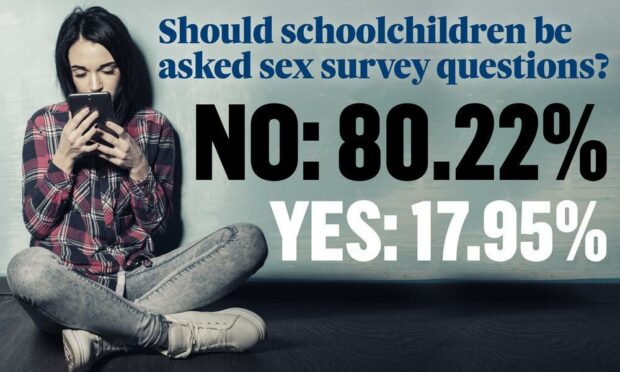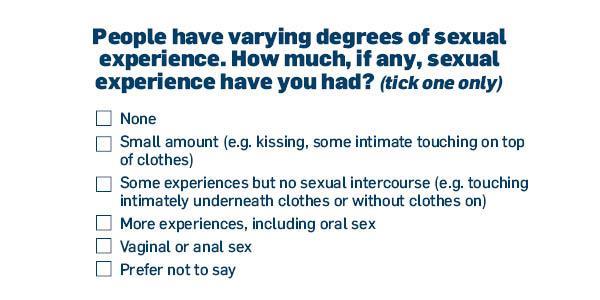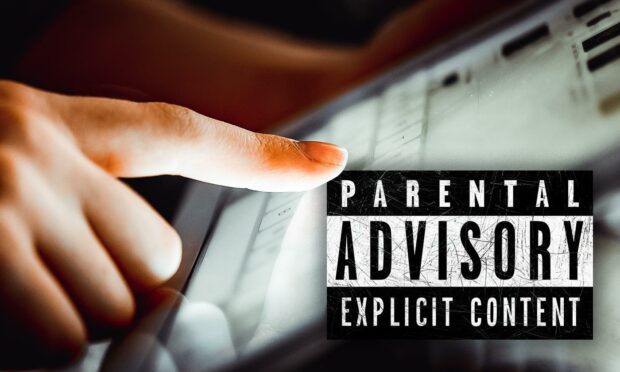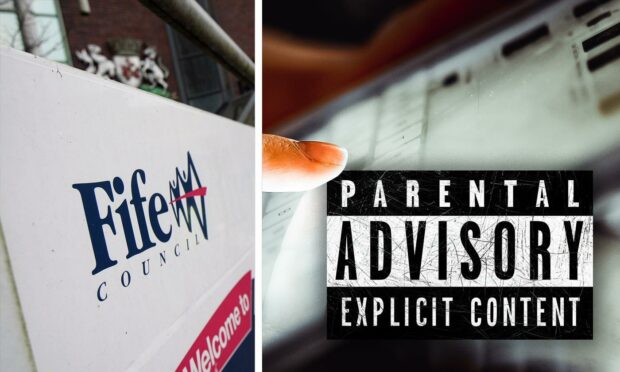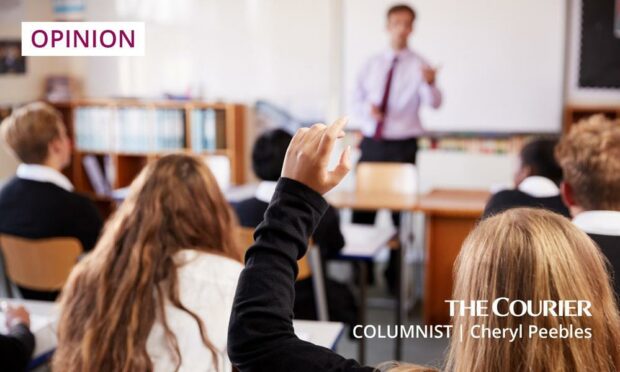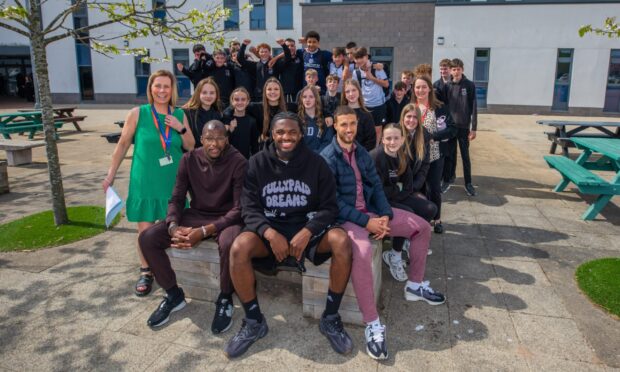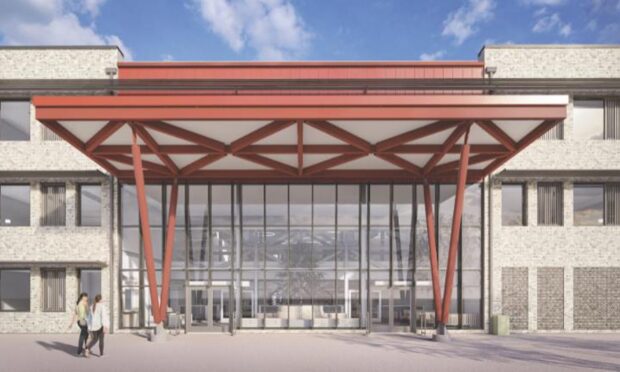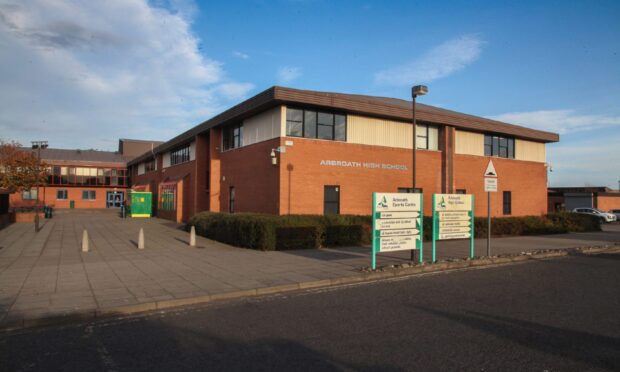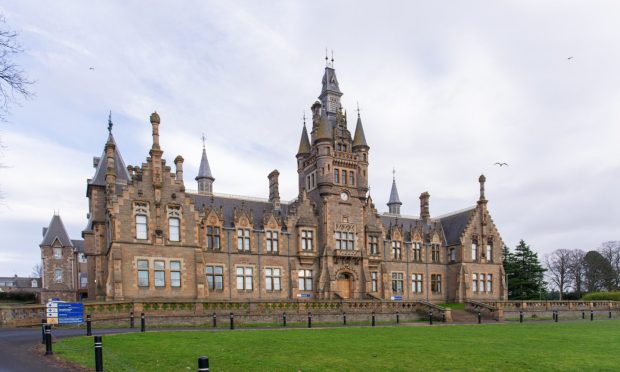Pressure is mounting on the government to scrap a controversial sex survey for schoolchildren – which you told us should be ditched.
The health and wellbeing census to be conducted in schools across Scotland asks kids as young as 14 about the extent of their sexual experience.
After we revealed the explicit contents of the Q&A, a poll we conducted of readers found eight in 10 respondents were against asking such questions of S4 to S6 pupils.
And as some local authorities say they won’t conduct the survey, the Scottish Conservatives have called for it to be scrapped, branding it “overly intrusive”.
However, the Scottish Government insists it would be “irresponsible” to stop a census focussing on children’s wellbeing during the pandemic.
The census will ask P5 to S6 pupils across Scotland about topics including physical activity, diet, body image and bullying.
Those in S4 and above will also be asked about alcohol, drugs and sexual experience.
One of the questions asks them how much sexual experience they have had, with answers including ‘oral sex’ and ‘vaginal or anal sex’.
We asked readers whether schoolchildren should be asked such questions and 80.22% said ‘NO’, while 17.95% said ‘YES’. Some 1.83.% voted ‘other’, with one stating ‘with parental permission’ and another ‘who cares?’.
It is understood eight councils have decided NOT to conduct the census as it is, and 12 – including Fife Council – are reviewing the contents.
Angus, Dundee City and Perth and Kinross councils are among those to confirm they WILL carry out the survey.
Local authorities have been asked to gather the data to improve support to children and young people, inform future policy and better understand factors influencing attainment.
Recommended questions have been set by the Scottish Government but councils can change them.
Children will not be asked for their names but will be identifiable by an ID number and they – or their parents or carers on their behalf – can opt out or skip questions.
Adults would be uncomfortable answering them, so it’s difficult to grasp why anyone thought they were suitable for younger people.”
Scottish Conservatives children’s spokeswoman Meghan Gallacher
The Scottish Conservatives children’s spokeswoman Meghan Gallacher wants the government to rip the survey up and start again.
She said: “Whatever its original intentions were, it’s clear that this census is not fit for purpose.
“Parents have raised concerns about privacy and the nature of the personal information being gathered by the state.
“A number of questions are overly intrusive and inappropriate for children to answer. Adults would be uncomfortable answering them, so it’s difficult to grasp why anyone thought they were suitable for younger people.”
The government said only one of the eight local authorities not participating – West Lothian Council – had cited the sensitive nature of the questions, with others having conducted their own survey, using existing local data or struggling with capacity due to Covid.
Surveys ‘play a crucial role’
A spokeswoman said: “It would be irresponsible to withdraw a census which focusses on children and young people’s health and wellbeing, particularly during the course of a pandemic.
“Health and wellbeing surveys like this one are not new and play a crucial role in ensuring children and young people have access to the help, advice and services they need.
“We are in regular dialogue with the local authorities, and monitoring progress. The latest information we have is 24 (out of 32) local authorities are taking part.”
